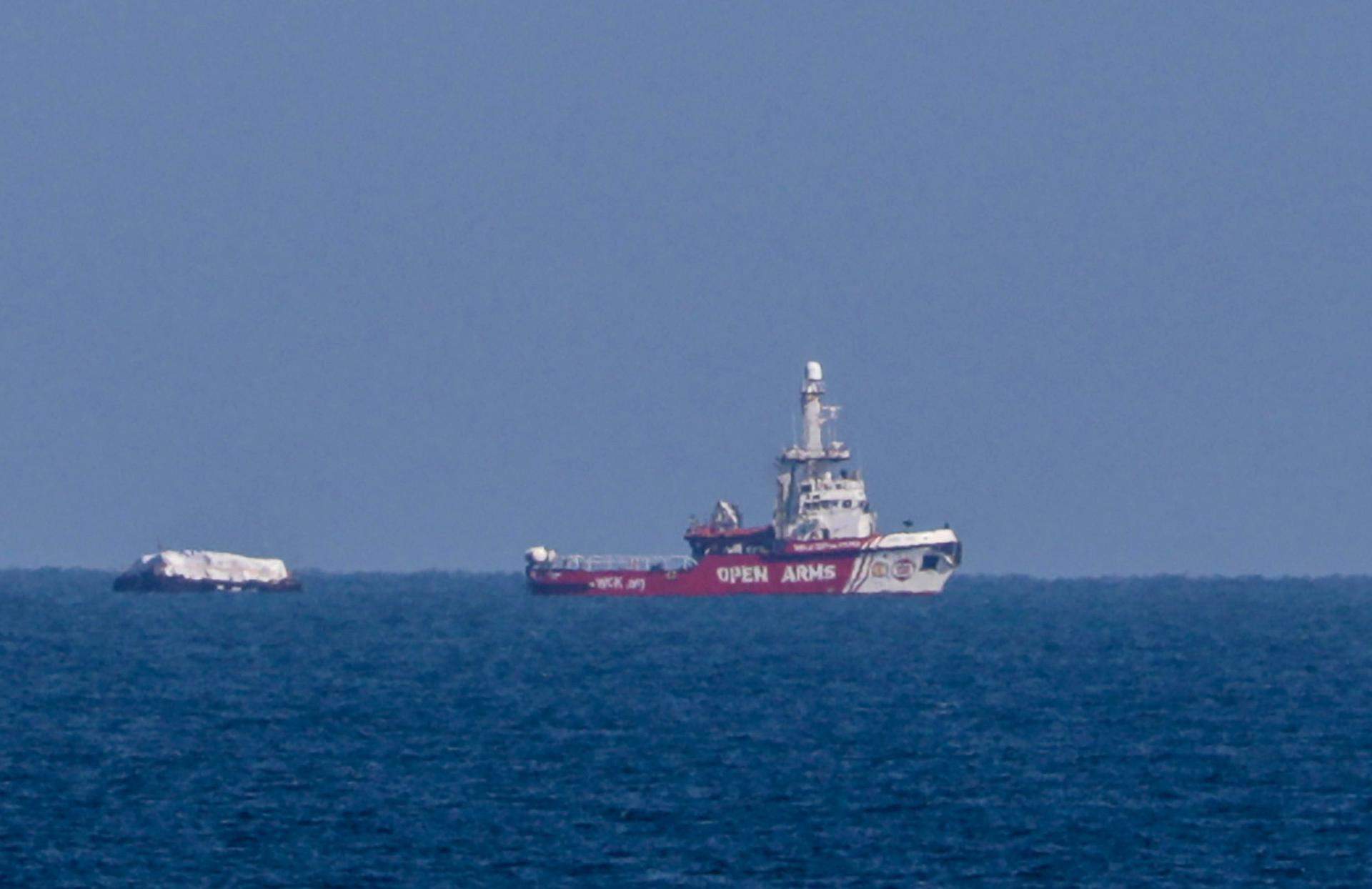The Catalan NGO Open Arms and the Asturian chef José Andrés have unloaded food aid on the coast of Gaza, after arriving this Friday afternoon. Nearly 200 tonnes of food and water have been offloaded for distribution, the first step in opening up a maritime humanitarian corridor to combat hunger in the Palestinian enclave caused by the total inadequacy of aid arriving by land after five months of relentless military assault by Israel. Once on land, the cargo has been moved by twelve trucks working with World Central Kitchen (WCK, the chef's NGO), which will distribute it in northern Gaza. This was stated by the Israeli army, which reported that "the ships and goods were subjected to an exhaustive security inspection". "It is important to emphasize that the delivery of this humanitarian aid does not affect the maritime blockade (of the enclave)," the army recalled. At the same time, the UN has warned that maritime corridors on their own are insufficient and overland aid must be increased.
After a three-day journey from Cyprus, the vessel reached its destination: "The Open Arms, in its joint mission with WCK, is already off the coast of Gaza, after 72 hours of sailing from Larnaca". "We are the first ship to open this maritime humanitarian corridor that will allow the entry of food to ease the extreme situation that millions of people in the Gaza strip are suffering," the organization said in a tweet.
Today @WCKitchen is reaching 37 million meals in Gaza. On the same day that we hoped to finish our Jetty and download 200 tones on a pilot test before bad weather. So far 2 crates already delivered from the @openarms_fund barge.🙏But still more to do next few ours…#FeedTheNorth pic.twitter.com/3ECfsKalbR
— José Andrés 🇺🇸🇪🇸🇺🇦 (@chefjoseandres) March 15, 2024
Open Arms has also noted that the ship was carrying a 200-ton cargo of "flour, rice, lentils, chickpeas, tuna and other staples that will turn into a million meals." "We will never forget this moment. It is history", added the Catalan ONG, before thanking chef José Andrés and the WCK "team" for their collaboration in this delivery of humanitarian aid.
"Today WCK reaches 37 million meals in Gaza," tweeted José Andrés, US-based chef who comes from Asturias in Spain. The WCK aid organization stated that it was unloading "food that is desperately needed", after both humanitarian groups and the UN have warned for days that neither sea nor air aid can replace the need for overland entry of food. "While any increase in aid to Gaza is vital, overland entry is what allows for a large-scale response," said the UNRWA agency in a statement on Thursday, adding that "humanitarian actors have stated that the deliveries by sea and air are much more expensive and inefficient than sending trucks overland." WCK's response manager, Juan Camilo Jiménez, confirmed to Efe that the arrival of a second shipment with 400 tons of food, which is still in the port of Larnaca, is expected in the coming days.
Pressure on Israel
The foreign ministry of the United Arab Emirates (UAE), which has collaborated with both the NGO of chef José Andrés and with Cyprus, has confirmed the "success" of the arrival of humanitarian aid in the north of the Gaza strip and praised the "vital efforts of Cypriot leaders, WCK and international partners in strengthening the humanitarian response". Of course, it recalled that "the exacerbation of the humanitarian catastrophe in the Strip requires the adoption of a collective international approach" to prevent the civilian population from continuing to suffer and to be able to sustainably guarantee the "urgent, safe and without obstacles" of help.
The Open Arms voyage is the first part of the so-called Operation Amaltea, which aims to establish a maritime humanitarian corridor between Cyprus and the Palestinian enclave. However, there are now significant logistical and security challenges for the distribution of aid in the Strip, which will be subjected to prior inspections by the Israeli authorities. The authorities in Gaza, controlled by Hamas, have asked the international community to "reconsider the viability" of the maritime corridor and have expressed their doubts about this mechanism, because of the amount of aid and the slowness of the process. That is why they have appealed to "pressure" Israel for the entry of convoys by land. For its part, the UN and other non-governmental organizations have denounced the extensive restrictions imposed by Israel on the delivery of humanitarian aid to Gaza.

